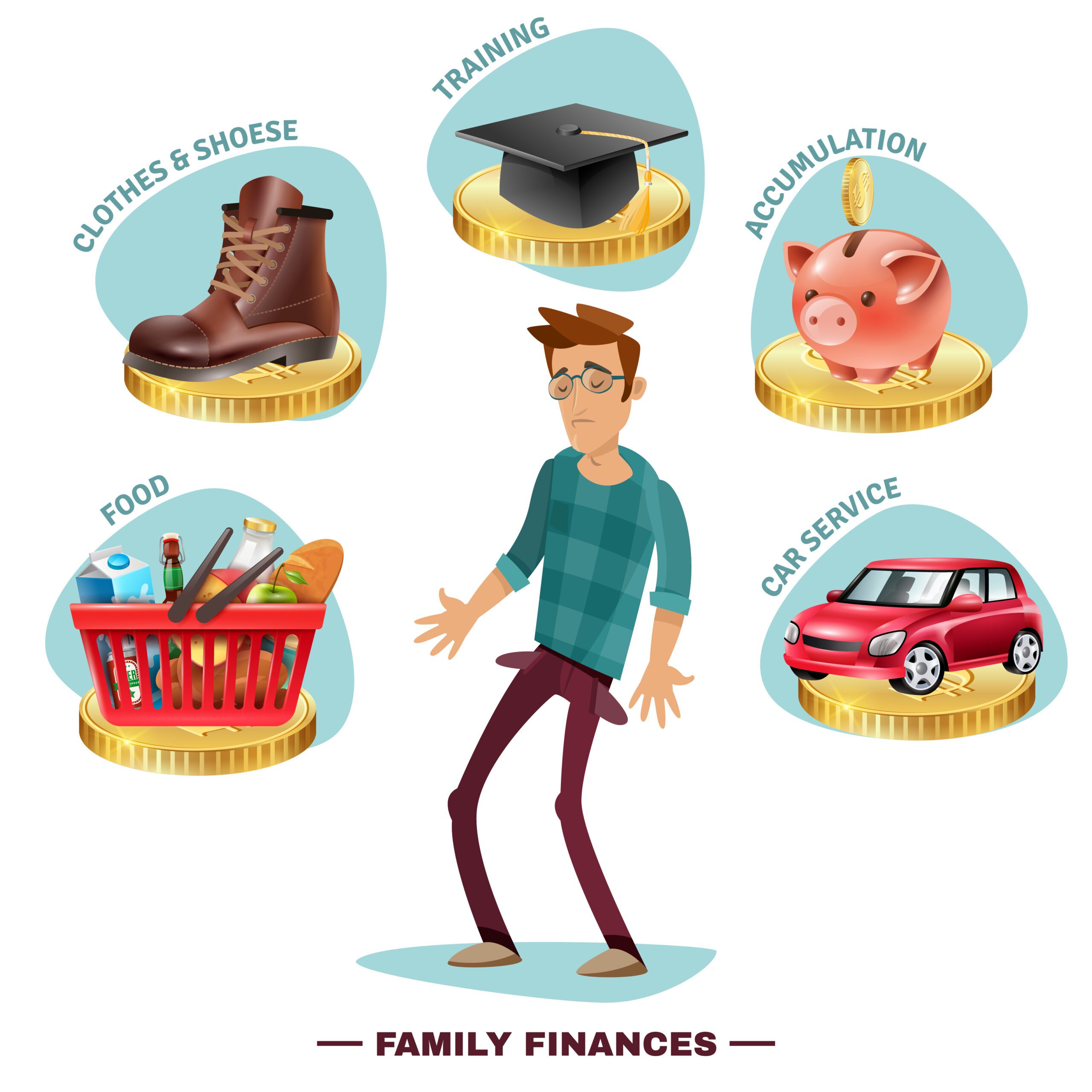Introduction
Are you ready to take control of your financial future? As a young adult, mastering financial life skills is one of the most powerful things you can do for long-term success. Whether you’re navigating student loans, trying to build credit, or wondering how to start investing, understanding money management is key to financial independence.
In this guide Mastering 5 Financial Life Skills for Young Adults, we’ll walk you through the fundamental financial skills you need, giving you practical steps to build wealth, avoid debt, and create a secure future. After all, financial literacy isn’t just about numbers—it’s about empowering yourself to make smart choices and live the life you want.
Why Financial Literacy is Crucial for Young Adults
Many schools don’t teach financial literacy, leaving young adults to figure things out the hard way. The result? A generation drowning in debt, struggling with poor money habits, and unsure about how to grow wealth. Financial knowledge is power—it helps you make informed decisions, avoid financial pitfalls, and build a secure future.
The Consequences of Poor Financial Skills
Living paycheck to paycheck
Struggling with overwhelming debt
Poor credit scores limiting future opportunities
Lack of savings for emergencies or retirement
Want to avoid these struggles? Keep reading to gain the skills you need to thrive financially.
1. Budgeting: The Foundation of Financial Success
Budgeting isn’t about restricting yourself—it’s about giving yourself freedom to spend on what truly matters. A well-planned budget ensures that you live within your means, save effectively, and still enjoy life.
How to Create an Effective Budget
- Track Your Income and Expenses: Start by listing all sources of income and tracking your spending habits for a month.
- Categorize Expenses: Break down expenses into essentials (rent, food, bills) and non-essentials (entertainment, dining out, shopping).
- Use the 50/30/20 Rule:
- 50% for needs (rent, groceries, utilities)
- 30% for wants (entertainment, hobbies, dining out)
- 20% for savings and debt repayment
- Utilize Budgeting Apps: Apps like Mint, YNAB (You Need A Budget), and PocketGuard can help automate budgeting and track your
spending habits.
2. Smart Saving Strategies for a Secure Future
Saving money isn’t just about stashing cash under your mattress—it’s about growing your wealth and preparing for life’s uncertainties.
Emergency Fund: Your Financial Safety Net
An emergency fund is crucial for unexpected expenses like medical emergencies, car repairs, or sudden job loss. Aim to save at least three to six months’ worth of living expenses in an easily accessible account.
Short-Term vs. Long-Term Savings
- Short-term savings (for vacations, gadgets, or small investments) should go into a high-yield savings account.
- Long-term savings (for a house, retirement, or major life goals) should be invested in stocks, bonds, or mutual funds.
3. Understanding and Building Credit
Your credit score can determine whether you qualify for loans, the interest rates you receive, and even your ability to rent an apartment.
Tips to Build a Strong Credit Score
- Pay bills on time – Payment history makes up 35% of your credit score.
- Keep credit utilization below 30%.
- Avoid opening too many accounts at once.
- Check your credit report regularly for errors (you can get a free annual credit report at AnnualCreditReport.com).
4. Investing: Growing Your Wealth
Investing isn’t just for the wealthy—it’s how they became wealthy in the first place! Starting early allows you to take advantage of compound interest, where your money grows exponentially over time.
Beginner-Friendly Investment Options
- Index Funds & ETFs: Low-risk and great for beginners.
- Stocks: Buying shares in companies can offer high returns, but research is key.
- Real Estate: A long-term investment option for building wealth.
5. Managing Debt Wisely
Debt can be a tool or a trap—it all depends on how you manage it.
Smart Debt vs. Bad Debt
- Good Debt: Student loans, mortgages, business investments (they help build wealth over time).
- Bad Debt: Credit card debt, payday loans (high interest, no wealth-building potential).
How to Pay Off Debt Faster
- Follow the Snowball Method (pay off small debts first for motivation) or Avalanche Method (pay off high-interest debt first to save money).
- Consolidate high-interest loans if possible.
Conclusion
Financial freedom doesn’t happen overnight, but with the right knowledge and habits, you can build a stable and prosperous future. Start by budgeting wisely, saving consistently, building credit, investing smartly, and managing debt effectively. The earlier you start, the better off you’ll be!
“Your financial future is in your hands—take charge of it today!”
Thank you for exploring this insightful article! If you’re hungry for more knowledge, don’t miss out on our other engaging articles. Dive into our treasure trove of wisdom and discover new perspectives on related topics. Click ‘Our Blog‘ and ‘How to Guide‘ to embark on your next adventure. Happy reading!
FAQs on financial skills for young adults
1. What are the most important financial skills for young adults?
Budgeting, saving, credit management, investing, and debt control.
2. How much should I save each month?
Aim for at least 20% of your income for savings and debt repayment.
3. What’s the best way to build credit?
Pay bills on time, keep credit utilization low, and monitor your credit score.
4. Is investing risky for beginners?
All investments carry risk, but diversified options like index funds are safer.
5. How can I avoid living paycheck to paycheck?
Create a budget, cut unnecessary expenses, and build an emergency fund.
6. What’s the best budgeting method for young adults?
The 50/30/20 rule is simple and effective.
7. When should I start saving for retirement?
As early as possible! Compound interest works best over time.
8. How do I get out of debt fast?
Use the Snowball or Avalanche method to prioritize debt repayment.
9. What’s the safest way to start investing?
Start with a diversified index fund or ETF.
10. Why is financial literacy important?
It helps you make informed decisions, avoid debt, and build long-term wealth.

